Animals
-
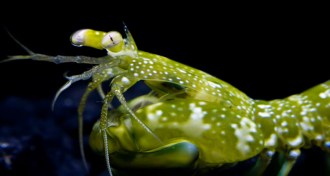 Animals
AnimalsMantis shrimp tune their eyes with sunscreen
Blocking some rays in just the right way creates six ways of actually seeing ultraviolet light.
-
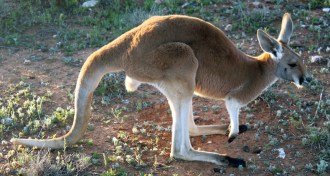 Animals
AnimalsRed kangaroo’s tail acts like a fifth leg
Red kangaroos wield their tails like another limb when moving slowly.
-
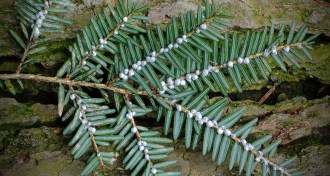 Ecosystems
EcosystemsInvasive insect tied to shrinking river
A river in North Carolina shrank after a hemlock woolly adelgid eradicated eastern hemlock trees in the region.
-
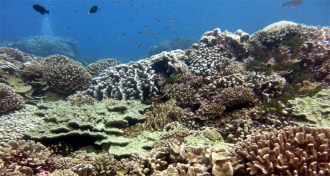 Life
LifeNear reefs, microbial mix dictated by coral and algae
A reef’s dominant organism, coral or algae, may determine what kind of bacteria live there.
-
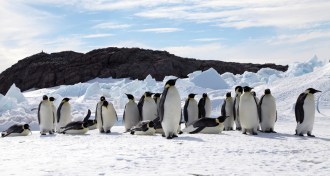 Animals
AnimalsEmperor penguin population could decline by 2100
Emperor penguins’ reign over Antarctic sea ice could be in decline by the beginning of the 22nd century.
-
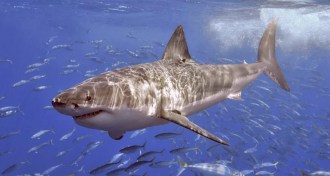 Animals
AnimalsWhy great white shark sightings are good news
Conservation measures implemented in the 1990s halted a decline in great white sharks in the Atlantic.
-
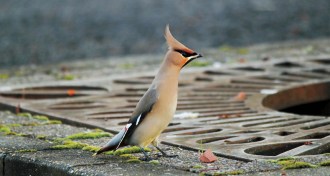 Animals
AnimalsTo ID birds, try facial recognition
Improve your backyard birding using facial recognition software.
-

-

-
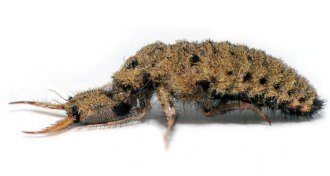 Animals
AnimalsAnt lions hunt despite sealed lips
Ant lions are ferocious predators, but some of them don’t have a mouth. At least not in the usual sense.
By Susan Milius -
 Animals
AnimalsMysterious neurotoxin may help flatworms kill prey
Tetrodotoxin, the deadly chemical in pufferfish, could help flatworms transform their earthworm prey into puddles of goo.
By Beth Mole -
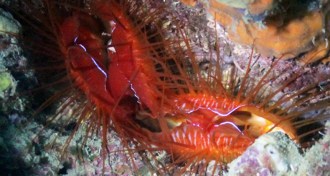 Physics
PhysicsTiny silica spheres put the disco in disco clams
The electric effect in disco clams is actually the result of light scattering off tiny silica spheres.